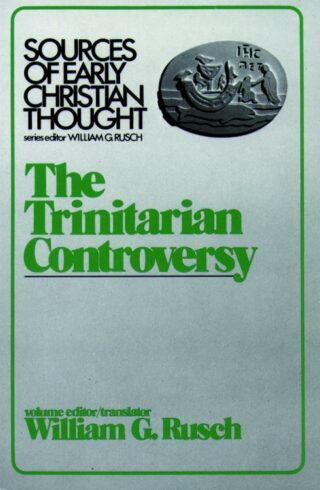Category
- Welcome!
- ~Books
- ~CBI Classes (Spring Semester)
- ~Pastor Mike Fabarez
- Apologetics
- Bible Accessories
- Bible Journals/Journals
- Bibles
- Biblical Studies
- Biographies
- Booklets
- Christian Living
- Commentaries
- Cults
- Devotional
- Evangelism/Missions
- Family/Parenting
- Kids
- Marriage
- Men
- Ministry/Teaching
- Prayer
- Reference
- Sale
- Seasonal
- Spanish-Libros/Biblias en Español
- Teen
- Theology
- All Around Theology
- Angelology (Doctrine of Angels, Satans & Demons)
- Anthropology & Harmartiology (Doctrine of Man & Sin)
- Bibliology (Doctrine of the Word of God)
- Christology (Doctrine of Christ)
- Ecclesiology (Doctrine of the Church)
- Eschatology (Doctrine of Last Things)
- Pneumatology (Doctrine of the Holy Spirit)
- Proper (Doctrine of God)
- Soteriology (Doctrine of Salvation)
- Women
William Rusch
- You cannot add "Trinitarian Controversy (Reprinted)" to the cart because the product is out of stock.
Showing the single result
Trinitarian Controversy (Reprinted)
$24.00Original price was: $24.00.$18.99Current price is: $18.99.Read more13 Chapters
Additional Info
This volume is a collection of primary texts that illustrates the lengthy process by which the early Christians reached a coherent doctrine of God. The period under discussion, generally known as the trinitarian controversy dates from around AD 319, the preaching of Arius, to about AD 419, the completion of Augustine’s On the Trinity. The documents reveal the unfolding of the theological process in which the church was seeking to distinguish its faith from paganism and to affirm the salvific character of its message.


